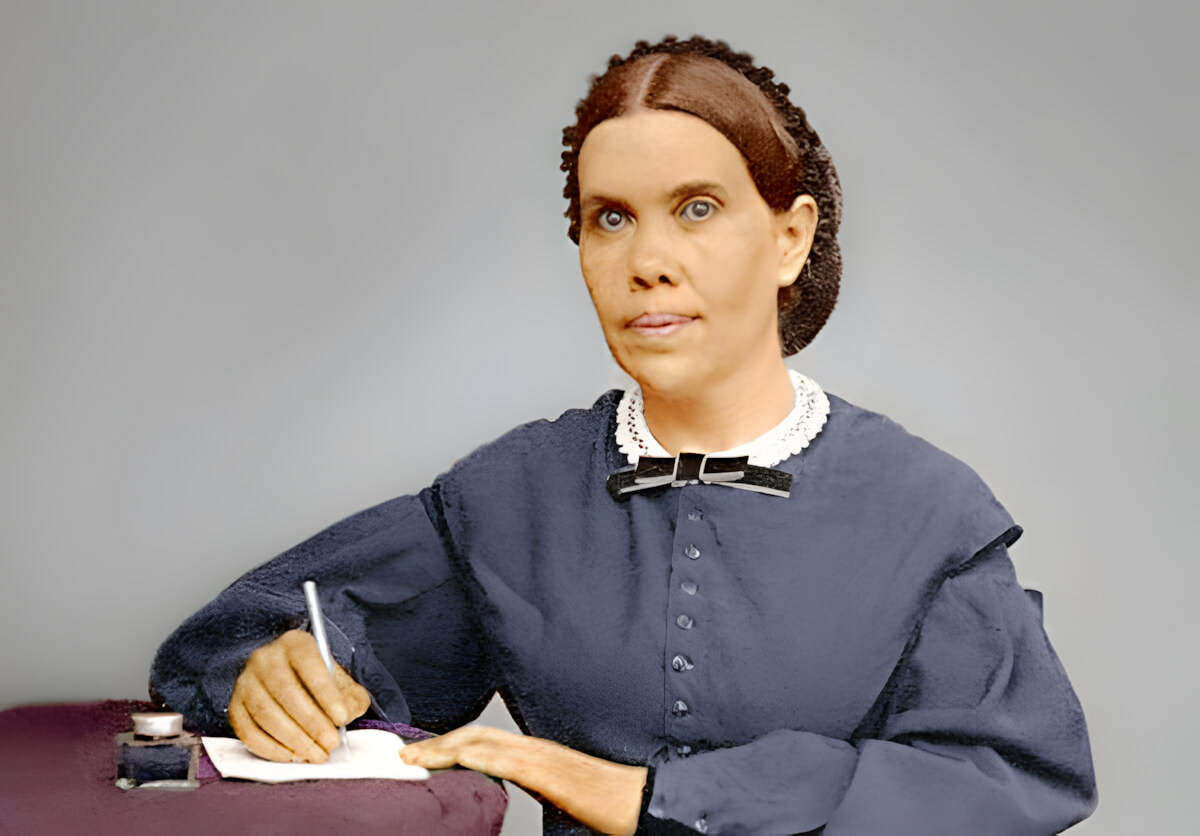Щоденні біблійні уроки

Євангелія від Івана частина 4 (англ.)
Lesson 12. Practical Outreach
Змінити розмір шрифту:
MEMORY VERSE: “Go home to thy friends, and tell them how great things the Lord hath done for thee, and hath had compassion on thee” (Mark 5:19, second part).
Suggested Readings: Testimonies for the Church, vol. 6, pp. 254–260; Ibid., vol. 1, p. 412.
“The disciples were to begin their work where they were.” The Desire of Ages, p. 822.
1. MANY NATIONALITIES ASSEMBLED Sun, Dec 14
a. When was the fulfillment of Christ’s promise of special power for His disciples noticeably observed for the first time?
Acts 2:1–4: 1 When the day of Pentecost arrived, they were all together in one place. 2 And suddenly there came from heaven a sound like a mighty rushing wind, and it filled the entire house where they were sitting. 3 And divided tongues as of fire appeared to them and rested on each one of them. 4 And they were all filled with the Holy Spirit and began to speak in other tongues as the Spirit gave them utterance.
“The Holy Spirit, assuming the form of tongues of fire, rested upon those assembled. This was an emblem of the gift then bestowed on the disciples, which enabled them to speak with fluency languages with which they had heretofore been unacquainted. The appearance of fire signified the fervent zeal with which the apostles would labor and the power that would attend their work.”—The Acts of the Apostles, p. 39.
b. Why was the gift of tongues needed on that occasion?
Acts 2:5–11: 5 Now there were dwelling in Jerusalem Jews, devout men from every nation under heaven. 6 And at this sound the multitude came together, and they were bewildered, because each one was hearing them speak in his own language. 7 And they were amazed and astonished, saying, “Are not all these who are speaking Galileans? 8 And how is it that we hear, each of us in his own native language? 9 Parthians and Medes and Elamites and residents of Mesopotamia, Judea and Cappadocia, Pontus and Asia, 10 Phrygia and Pamphylia, Egypt and the parts of Libya belonging to Cyrene, and visitors from Rome, 11 both Jews and proselytes, Cretans and Arabians—we hear them telling in our own tongues the mighty works of God. ”
“During the dispersion the Jews had been scattered to almost every part of the inhabited world, and in their exile they had learned to speak various languages. Many of these Jews were on this occasion in Jerusalem, attending the religious festivals then in progress. Every known tongue was represented by those assembled. This diversity of languages would have been a great hindrance to the proclamation of the gospel; God therefore in a miraculous manner supplied the deficiency of the apostles. The Holy Spirit did for them that which they could not have accomplished for themselves in a lifetime.”—Ibid., pp. 39, 40.
2. WITNESSING IN FOREIGN LANGUAGES Mon, Dec 15
a. What does the apostle say concerning the genuine gift of speaking in foreign languages?
1 Corinthians 12:28, 30: 28 And God has appointed in the church first apostles, second prophets, third teachers, then miracles, then gifts of healing, helping, administrating, and various kinds of tongues. 30 Do all possess gifts of healing? Do all speak with tongues? Do all interpret?
How does this apply today?
“There are among us those who, without the toil and delay of learning a foreign language, might qualify themselves to proclaim the truth to other nations. In the primitive church, missionaries were miraculously endowed with a knowledge of the languages in which they were called to preach the unsearchable riches of Christ. And if God was willing thus to help His servants then, can we doubt that His blessing will rest upon our efforts to qualify those who naturally possess a knowledge of foreign tongues, and who, with proper encouragement, would bear to their own countrymen the message of truth? We might have had more laborers in foreign missionary fields, had those who entered these fields availed themselves of every talent within their reach. . . .
“It may in some cases be necessary that young men learn foreign languages. This they can do with most success by associating with the people, and at the same time devoting a portion of each day to studying the language. This should be done, however, only as a necessary step preparatory to educating such as are found in the missionary fields themselves, and who, with proper training, can become workers. It is essential that those be urged into the service who can speak in their mother tongue to the people of different nations.”—Gospel Workers, pp. 82, 83.
b. What talents did God promise to His servants, and what should we do to develop these talents?
Ephesians 2:8: For by grace you have been saved through faith. And this is not your own doing; it is the gift of God,
1 Corinthians 12:7–11: 7 To each is given the manifestation of the Spirit for the common good. 8 For to one is given through the Spirit the utterance of wisdom, and to another the utterance of knowledge according to the same Spirit, 9 to another faith by the same Spirit, to another gifts of healing by the one Spirit, 10 to another the working of miracles, to another prophecy, to another the ability to distinguish between spirits, to another various kinds of tongues, to another the interpretation of tongues. 11 All these are empowered by one and the same Spirit, who apportions to each one individually as he wills.
“Not that all the gifts are imparted to each believer. . . . But the gifts of the Spirit are promised to every believer according to his need for the Lord’s work. The promise is just as strong and trustworthy now as in the days of the apostles.”—The Desire of Ages, p. 823.
“The cause of God needs efficient men; it needs men who are trained to do service as teachers and preachers. Men have labored with a measure of success who have had little training in school or college; but these might have attained a greater measure of success, and might have been more efficient laborers, if at the very start they had acquired mental discipline.”—Gospel Workers, p. 92.
3. VITAL KEYS TO SUCCESS Tue, Dec 16
a. Why are missionary schools such a valuable resource—and what is the first duty of anyone seeking to share the gospel efficiently?
2 Timothy 2:15: 15 Do your best to present yourself to God as one approved, a worker who has no need to be ashamed, rightly handling the word of truth.
“The work of winning souls to Christ demands careful preparation. Men cannot enter the Lord’s service without the needed training, and expect the highest success. Mechanics, lawyers, merchants, men of all trades and professions, are educated for the line of business they hope to enter. It is their policy to make themselves as efficient as possible. Go to the milliner or the dressmaker, and she will tell you how long she toiled before she had a thorough knowledge of her business. The architect will tell you how long it took him to understand how to plan a tasteful, commodious building. And so it is in all the callings that men follow.
“Should the servants of Christ show less diligence in preparing for a work infinitely more important? Should they be ignorant of the ways and means to be employed in winning souls? It requires a knowledge of human nature, close study, careful thought, and earnest prayer, to know how to approach men and women on the great subjects that concern their eternal welfare.”—Gospel Workers, p. 92.
“It is only at the altar of God that we can kindle our tapers with divine fire. . . .
“God’s messengers must tarry long with Him, if they would have success in their work. The story is told of an old Lancashire woman who was listening to the reasons that her neighbors gave for their minister’s success. They spoke of his gifts, of his style of address, of his manners. ‘Nay,’ said the old woman, ‘I will tell you what it is. Your man is very thick with the Almighty.’ ”—Ibid., p. 255.
b. What divine protection has been promised to Christ’s disciples who go forth to spread the message of truth?
Mark 16:18 (first part): they will pick up serpents with their hands; and if they drink any deadly poison, it will not hurt them; they will lay their hands on the sick, and they will recover. ”
Cite one instance of the fulfillment of this promise.
Acts 28:1–5: 1 After we were brought safely through, we then learned that the island was called Malta. 2 The native people showed us unusual kindness, for they kindled a fire and welcomed us all, because it had begun to rain and was cold. 3 When Paul had gathered a bundle of sticks and put them on the fire, a viper came out because of the heat and fastened on his hand. 4 When the native people saw the creature hanging from his hand, they said to one another, “No doubt this man is a murderer. Though he has escaped from the sea, Justice has not allowed him to live. ” 5 He, however, shook off the creature into the fire and suffered no harm.
“At that time [the early Christian era] poisoning was often practiced. Unscrupulous men did not hesitate to remove by this means those who stood in the way of their ambition. Jesus knew that the life of His disciples would thus be imperiled. Many would think it doing God service to put His witnesses to death. He therefore promised them protection from this danger.”—The Desire of Ages, p. 821.
4. MINISTERING TO THE SICK Wed, Dec 17
a. What additional power did Jesus grant to His disciples, and what was their declaration acknowledging this power?
Luke 9:1: And he called the twelve together and gave them power and authority over all demons and to cure diseases,
10:17: The seventy-two returned with joy, saying, “Lord, even the demons are subject to us in your name! ”
How did Christ answer them?
Luke 10:20: Nevertheless, do not rejoice in this, that the spirits are subject to you, but rejoice that your names are written in heaven. ”
“Rejoice not in the possession of power, lest you lose sight of your dependence upon God. Be careful lest self-sufficiency come in, and you work in your own strength, rather than in the spirit and strength of your Master. Self is ever ready to take the credit if any measure of success attends the work. Self is flattered and exalted, and the impression is not made upon other minds that God is all and in all. . . . When we have a realization of our weakness, we learn to depend upon a power not inherent.”—The Desire of Ages, p. 493.
b. What was the result of Jesus giving priority to the work of healing the sick?
Luke 4:38, 39: 38 And he arose and left the synagogue and entered Simon’s house. Now Simon’s mother-in-law was ill with a high fever, and they appealed to him on her behalf. 39 And he stood over her and rebuked the fever, and it left her, and immediately she rose and began to serve them.
5:12, 13: 12 While he was in one of the cities, there came a man full of leprosy. And when he saw Jesus, he fell on his face and begged him, “Lord, if you will, you can make me clean. ” 13 And Jesus stretched out his hand and touched him, saying, “I will; be clean. ”And immediately the leprosy left him.
6:6, 10: 6 On another Sabbath, he entered the synagogue and was teaching, and a man was there whose right hand was withered. 10 And after looking around at them all he said to him, “Stretch out your hand. ”And he did so, and his hand was restored.
“During His ministry Jesus devoted more time to healing the sick than to preaching. His miracles testified to the truth of His words, that He came not to destroy but to save. His righteousness went before Him, and the glory of the Lord was His rearward. Wherever He went, the tidings of His mercy preceded Him. Where He had passed, the objects of His compassion were rejoicing in health, and making trial of their new-found powers. Crowds were collecting around them to hear from their lips the works that the Lord had wrought. His voice was the first sound that many had ever heard, His name the first word they had ever spoken, His face the first they had ever looked upon. Why should they not love Jesus, and sound His praise? As He passed through the towns and cities He was like a vital current, diffusing life and joy wherever He went.”—Ibid., p. 350.
c. Following Christ’s example, what work did the disciples do?
Acts 3:1–7: 1 Now Peter and John were going up to the temple at the hour of prayer, the ninth hour. 2 And a man lame from birth was being carried, whom they laid daily at the gate of the temple that is called the Beautiful Gate to ask alms of those entering the temple. 3 Seeing Peter and John about to go into the temple, he asked to receive alms. 4 And Peter directed his gaze at him, as did John, and said, “Look at us. ” 5 And he fixed his attention on them, expecting to receive something from them. 6 But Peter said, “I have no silver and gold, but what I do have I give to you. In the name of Jesus Christ of Nazareth, rise up and walk! ” 7 And he took him by the right hand and raised him up, and immediately his feet and ankles were made strong.
9:32–34: 32 Now as Peter went here and there among them all, he came down also to the saints who lived at Lydda. 33 There he found a man named Aeneas, bedridden for eight years, who was paralyzed. 34 And Peter said to him, “Aeneas, Jesus Christ heals you; rise and make your bed. ” And immediately he rose.
28:8, 9: 8 It happened that the father of Publius lay sick with fever and dysentery. And Paul visited him and prayed, and putting his hands on him healed him. 9 And when this had taken place, the rest of the people on the island who had diseases also came and were cured.
5. RELIEVING HUMAN SUFFERING Thu, Dec 18
a. What far-reaching commission belongs to us until the end of probation?
Matthew 10:7, 8: 7 And proclaim as you go, saying, ‘The kingdom of heaven is at hand. ’ 8 Heal the sick, raise the dead, cleanse lepers, cast out demons. You received without paying; give without pay.
Mark 5:19: 19 And he did not permit him but said to him, “Go home to your friends and tell them how much the Lord has done for you, and how he has had mercy on you. ”
16:18 (last part): they will pick up serpents with their hands; and if they drink any deadly poison, it will not hurt them; they will lay their hands on the sick, and they will recover. ”
Luke 9:1, 2: 1 And he called the twelve together and gave them power and authority over all demons and to cure diseases, 2 and he sent them out to proclaim the kingdom of God and to heal.
“The followers of Christ are to labor as He did. We are to feed the hungry, clothe the naked, and comfort the suffering and afflicted. We are to minister to the despairing, and inspire hope in the hopeless. . . . The love of Christ, manifested in unselfish ministry, will be more effective in reforming the evildoer than will the sword or the court of justice. These are necessary to strike terror to the lawbreaker, but the loving missionary can do more than this. Often the heart will harden under reproof; but it will melt under the love of Christ. The missionary cannot only relieve physical maladies, but he can lead the sinner to the Great Physician, who can cleanse the soul from the leprosy of sin. Through His servants, God designs that the sick, the unfortunate, those possessed of evil spirits, shall hear His voice. Through His human agencies He desires to be a Comforter such as the world knows not.”—The Desire of Ages, pp. 350, 351.
b. What biblical principle likewise affects some methods by which the Lord’s work is carried out?
Ecclesiastes 3:1: For everything there is a season, and a time for every matter under heaven:
8:5: Whoever keeps a command will know no evil thing, and the wise heart will know the proper time and the just way.
“Spurious works of healing, claiming to be divine, will be wrought.
“For this reason the Lord has marked out a way in which His people are to carry forward a work of physical healing combined with the teaching of the word. Sanitariums are to be established, and with these institutions are to be connected workers who will carry forward genuine medical missionary work.”—Medical Ministry, p. 14.
PERSONAL REVIEW QUESTIONS Fri, Dec 19
1. Why was the gift of tongues necessary in the days of the apostles?
2. What am I doing with the talents entrusted to me?
3. How can I improve my service to others in medical missionary lines?
4. Under what circumstances does Jesus offer protection against fatal dangers?




